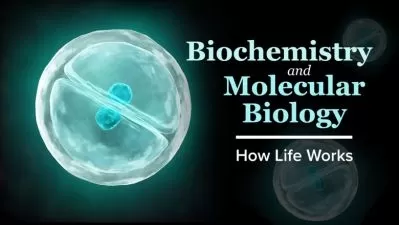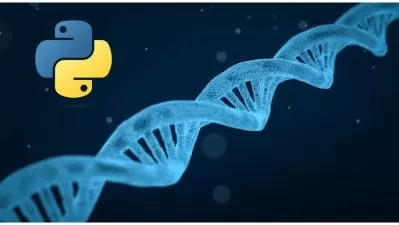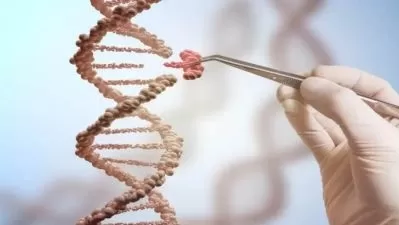Genetics Study, DNA, and Chromosomes Mutations
USMLE pass
2:04:10
Description
Important genetics topics and discussion
What You'll Learn?
- Genetic conditions and diseases
- Updated guidelines in genetics
- Important Diagnostic tests
- Oncology topics
- Important Microbiology topics
- Familial Genetics
- Case discussions
Who is this for?
What You Need to Know?
More details
DescriptionThis course covers all the important topics in genetics study. From DNA structures and mechanism to chromosomal mutations and genetic diseases. We will start by discussing some basics and move to clinical cases and patients’ presentation. By understanding the function of each gene, we can easily deduce the associated diseases and their presentation.
There many tests and essential investigations which we rely on daily in our clinical practice. A large number of these tests depends on deep understanding of genetics. Such as Polymerase Chain Reaction, Blotting Tests, and Flow Cytometry. These tests are very important and commonly seen in exams and in the clinical practice.
Oncology is a big part of this course as we will discuss important tumors and their genetics origin. Such as Leukemia, Basal Cell Carcinoma, Melanoma, and Ewing Sarcoma. Certain microbes and carcinogens can alter our genomes are predispose cancers, we will go through these offenders and understand them.
Understanding the modes of inheritance of genetic diseases is crucial for healthcare providers and genetics enthusiasts. Once you understand how genetic diseases run in families, it becomes easier to anticipate signs and symptoms and manage treatments accordingly.
At the end of the course we have a quiz section to test your knowledge and refine the important information you learned.
Who this course is for:
- Healthcare workers
- Medical, nursing, or pharmaceutical students
- Anyone with a passion for Gastroenterology and vitamins
This course covers all the important topics in genetics study. From DNA structures and mechanism to chromosomal mutations and genetic diseases. We will start by discussing some basics and move to clinical cases and patients’ presentation. By understanding the function of each gene, we can easily deduce the associated diseases and their presentation.
There many tests and essential investigations which we rely on daily in our clinical practice. A large number of these tests depends on deep understanding of genetics. Such as Polymerase Chain Reaction, Blotting Tests, and Flow Cytometry. These tests are very important and commonly seen in exams and in the clinical practice.
Oncology is a big part of this course as we will discuss important tumors and their genetics origin. Such as Leukemia, Basal Cell Carcinoma, Melanoma, and Ewing Sarcoma. Certain microbes and carcinogens can alter our genomes are predispose cancers, we will go through these offenders and understand them.
Understanding the modes of inheritance of genetic diseases is crucial for healthcare providers and genetics enthusiasts. Once you understand how genetic diseases run in families, it becomes easier to anticipate signs and symptoms and manage treatments accordingly.
At the end of the course we have a quiz section to test your knowledge and refine the important information you learned.
Who this course is for:
- Healthcare workers
- Medical, nursing, or pharmaceutical students
- Anyone with a passion for Gastroenterology and vitamins
User Reviews
Rating
USMLE pass
Instructor's Courses
Udemy
View courses Udemy- language english
- Training sessions 60
- duration 2:04:10
- Release Date 2023/06/08
















